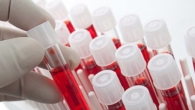
Six early signs that your liver is already damaged by alcohol
1
Alcohol consumption can lead to the accumulation of fat in the liver, which affects the functioning of the entire body.
The liver, which is responsible for more than 500 different functions in the body, has a unique ability to repair itself. However, this will only happen when a person stops drinking alcohol.
Experts at Alcohol Change UK warn that fatty liver disease is an indicator that it could be permanently damaged in the future. They say the early symptoms of alcohol-related liver disease are quite vague.
You may have liver damage if you are experiencing abdominal pain.
People with alcohol-induced liver damage may also suffer from fatigue, nausea and diarrhoea. This condition can make a person feel generally unwell and lose their appetite.
These symptoms are usually explained by the progression of an alcohol-related liver disease known as alcoholic hepatitis.
“Around a third of people with fatty liver disease develop alcoholic hepatitis,” says a study by Alcohol Change UK.
Watch out for yellowing of the skin and whites of the eyes (jaundice), which could be a warning sign of possible liver failure, experts say. Increased nausea and vomiting should also be a cause for concern.
Long-term damage to the liver will result in the organ being able to repair itself; instead, scar tissue develops, which sooner or later leads to cirrhosis.
– There is no cure for cirrhosis of the liver, but patients who completely stop drinking have a much better chance of survival, experts noted.
Signs of progressive alcohol-related liver disease:
- Yellowing of the skin and whites of the eyes (jaundice)
- Swelling in the legs, ankles and feet due to fluid accumulation
- Swelling in the abdomen due to fluid accumulation known as ascites
- High fever and chills
- Severe itching of the skin, sometimes almost unbearable
- Hair loss
- Red palms
- Significant weight loss
- Weakness and muscle wasting
- Confusion and memory problems, sleep problems (insomnia), and personality changes due to the accumulation of toxins in the brain
- Vomiting black matter due to internal bleeding
- Tendency to bleed and bruise
- Increased sensitivity to alcohol and drugs (because the liver cannot process them).
Do you drink too much?
Narcologists advise you to honestly answer the following questions:
- Have you ever thought that you need less drink?
- Have you ever been annoyed by people criticizing your drinking?
- Have you ever felt guilty about drinking?
- Are you familiar with hangovers?
If you answered “yes” to one or more of these questions, you may have a problem with alcohol.









Leave a Reply